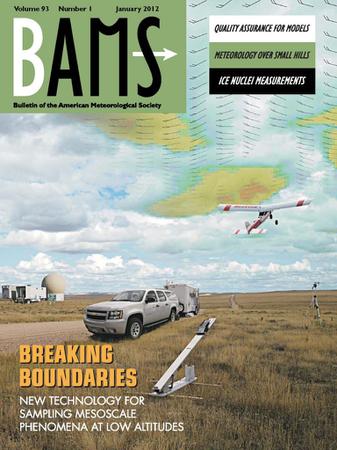DAWN: Dashboard for Agricultural Water Use and Nutrient Management—A Predictive Decision Support System to Improve Crop Production in a Changing Climate
IF 5.9
1区 地球科学
Q1 METEOROLOGY & ATMOSPHERIC SCIENCES
引用次数: 0
Abstract
Abstract Climate change presents huge challenges to the already-complex decisions faced by U.S. agricultural producers, as seasonal weather patterns increasingly deviate from historical tendencies. Under USDA funding, a transdisciplinary team of researchers, extension experts, educators, and stakeholders is developing a climate decision support Dashboard for Agricultural Water use and Nutrient management (DAWN) to provide Corn Belt farmers with better predictive information. DAWN’s goal is to provide credible, usable information to support decisions by creating infrastructure to make subseasonal-to-seasonal forecasts accessible. DAWN uses an integrated approach to 1) engage stakeholders to coproduce a decision support and information delivery system; 2) build a coupled modeling system to represent and transfer holistic systems knowledge into effective tools; 3) produce reliable forecasts to help stakeholders optimize crop productivity and environmental quality; and 4) integrate research and extension into experiential, transdisciplinary education. This article presents DAWN’s framework for integrating climate–agriculture research, extension, and education to bridge science and service. We also present key challenges to the creation and delivery of decision support, specifically in infrastructure development, coproduction and trust building with stakeholders, product design, effective communication, and moving tools toward use.破晓:农业用水和养分管理仪表板--在不断变化的气候中提高作物产量的预测性决策支持系统
摘要 气候变化给美国农业生产者本已复杂的决策带来了巨大挑战,因为季节性天气模式越来越偏离历史趋势。在美国农业部的资助下,一个由研究人员、推广专家、教育工作者和利益相关者组成的跨学科团队正在开发一个农业用水和养分管理气候决策支持仪表板(DAWN),为玉米带农民提供更好的预测信息。DAWN 的目标是通过创建基础设施,提供可信、可用的信息,以支持决策,从而使人们能够获得分季节到季节的预测。DAWN 采用综合方法:1)让利益相关者参与进来,共同建立决策支持和信息提供系统;2)建立耦合建模系统,将整体系统知识转化为有效工具;3)制作可靠的预测,帮助利益相关者优化作物生产率和环境质量;以及 4)将研究和推广融入体验式跨学科教育。本文介绍了破晓网络整合气候-农业研究、推广和教育以连接科学与服务的框架。我们还介绍了创建和提供决策支持所面临的主要挑战,特别是在基础设施开发、与利益相关者共同生产和建立信任、产品设计、有效沟通以及推动工具使用等方面。
本文章由计算机程序翻译,如有差异,请以英文原文为准。
求助全文
约1分钟内获得全文
求助全文
来源期刊
CiteScore
9.80
自引率
6.20%
发文量
231
审稿时长
6-12 weeks
期刊介绍:
The Bulletin of the American Meteorological Society (BAMS) is the flagship magazine of AMS and publishes articles of interest and significance for the weather, water, and climate community as well as news, editorials, and reviews for AMS members.

 求助内容:
求助内容: 应助结果提醒方式:
应助结果提醒方式:


